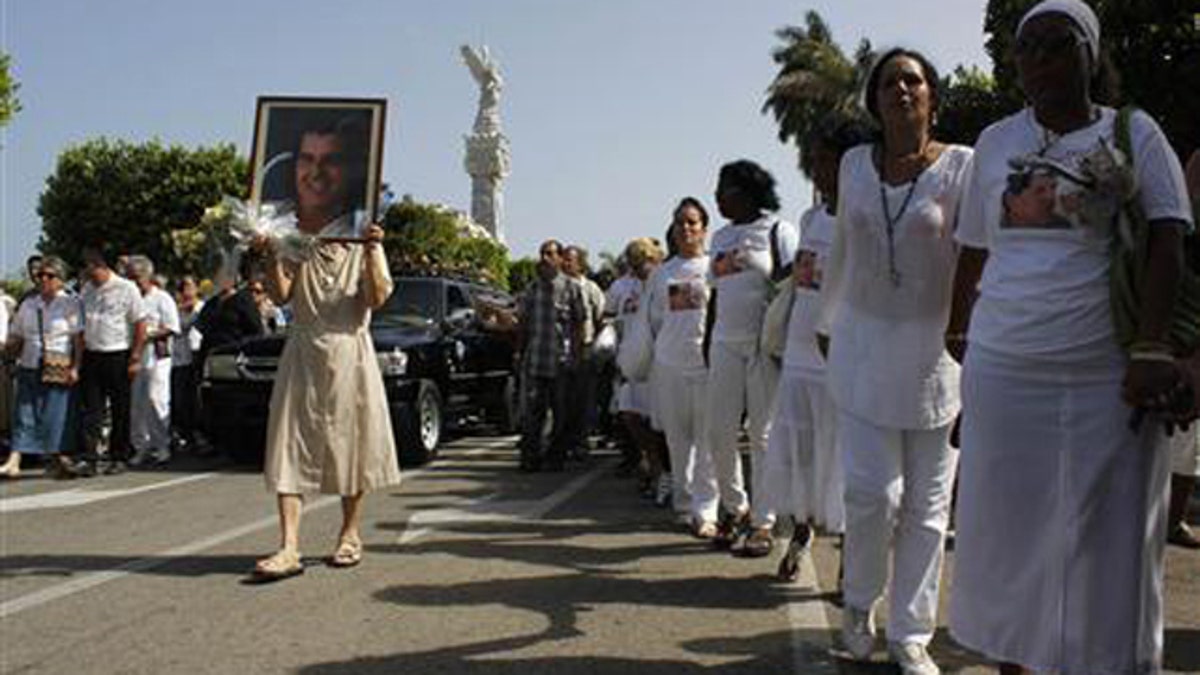
July 24, 2012: Members of the 'Ladies in White' opposition group march beside the funeral procession of Oswaldo Paya, one of Cuba's best-known dissidents, in Havana. (Reuters/File)
Cuban dissidents have expressed frustrations with the U.S. government over which political prisoners will be on a list of 53 people scheduled to be freed by the Castro regime as part of an effort to normalize relations between Washington and Havana.
According to Reuters, the dissidents say that U.S. officials have kept them in the dark about who is on the list, leading to concerns that common criminals will be freed while genuine political prisoners will be left behind.
A U.S. official told Reuters over the weekend that the U.S. had asked Cuba to release a specific group of people who were imprisoned on charges related to their political activities, but did not reveal Havana's response to that request. It is not entirely clear when or how the list was assembled, who was consulted inside Cuba, or even when the prisoners will actually be released.
President Barack Obama vowed to restore diplomatic ties and reverse some economic sanctions against Cuba on Dec. 17. Reuters, citing six dissident leaders, reported that the U.S. has been in contact with anti-Castro leaders in Cuba, but has given them no information about the 53 prisoners on the list. The dissidents also said that no one has been freed since the deal was announced.
According to the dissident Cuban Commission on Human Rights and National Reconciliation, there were 114 political prisoners in Cuba as of last June, though some are on parole and others have since been freed. However, the dissidents all say that there are far more political prisoners in Cuba than whichever 53 are granted freedom.
Officially, the Castro regime says it has not political prisoners. Cuban President Raul Castro, in announcing the deal, said only that he was releasing prisoners who were of interest to the U.S. On Dec. 9, eight days before the deal was announced, three dissidents were freed from prison. One of them told Reuters they had spent three years on jail on charges of murder and public disorder, even though they were never told who their alleged victim was.










































